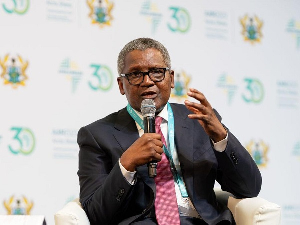The market dynamics and consumer behavior in Ghana may not align with the concept of a 24-hour economy.
The concept of a 24-hour market system should be driven by the needs and preferences of the consumers, as well as the viability of sustaining such a system. It requires careful analysis of the demand for round-the-clock services and products in the country.
Ghana, like any other country, has its own unique cultural and economic context. Factors such as working hours, societal norms, and consumer habits play crucial roles in determining the feasibility and success of a 24-hour economy.
Implementing a 24-hour market system without proper consideration of these factors may lead to inefficient resource allocation and wasted efforts. It is essential for any political party or government to thoroughly assess the actual demand and potential benefits before attempting to superimpose such a system on the economy.
Instead of hastily pushing for a 24-hour economy, it would be more prudent for the political party to focus on sustainable economic development strategies that address the real needs and challenges facing the Ghanaian population. This could involve improving infrastructure, creating employment opportunities, and fostering an environment for sustainable business growth.
The idea of a 24-hour market system in Ghana should be critically evaluated based on local conditions and consumer demand. A hasty implementation without considering these factors may prove inept and lead to unnecessary strain on the economy. The focus should be on comprehensive economic development strategies that prioritize the needs and aspirations of the Ghanaian people.
The suggestion to expand the operation hours of certain key services is not a revolutionary concept, as many sectors already provide round-the-clock services to meet demand. Sectors such as healthcare, emergency centers, and transportation companies have been operating 24/7 to cater to the needs of the public.
State-owned institutions such as BOST, GHAPOHA, some OMCs, and NPA already operate round-the-clock services at their operational sites. Therefore, the proposal to extend this to some state parastatals cannot be presented as an innovative idea that would transform the economy into a 24-hour market system.
We firmly oppose the attempt to deceive us with a rebranded version of an existing practice and reject the notion of it being a scam. It is essential for any proposal to be based on sound reasoning and a thorough evaluation of its feasibility and benefits.
Rather than focusing on superficial changes or empty rhetoric, it is crucial for policymakers to address the real issues and challenges faced by the Ghanaian people. This includes working towards sustainable economic development, job creation, and improving essential public services.
The expansion of round-the-clock services is not a novel concept, as many key sectors already operate under these conditions. Presenting it as a groundbreaking idea for a 24-hour market economy is deceptive and baseless. The priority should be on meaningful initiatives that address the needs and aspirations of the Ghanaian population.
Opinions of Thursday, 15 February 2024
Columnist: Abdallah Matin















